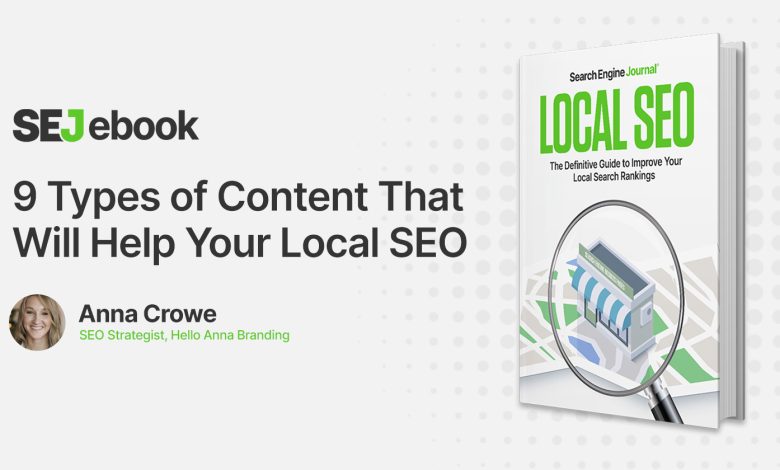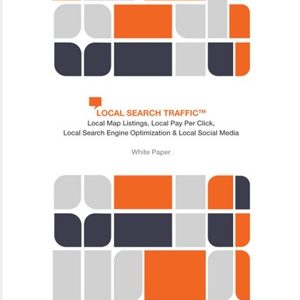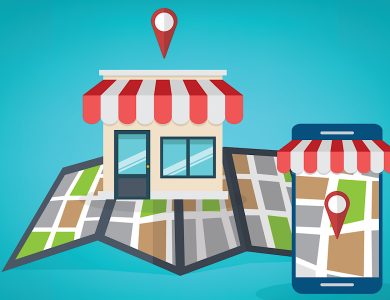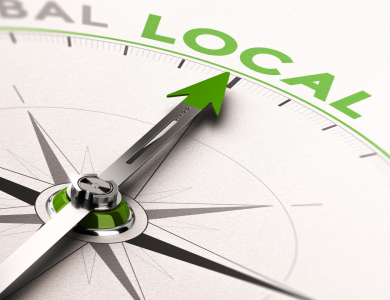
I’ve spent more hours than I care to admit searching for the best Mexican food, thumbing through Instagram posts, and picking the brains of local bloggers.
In pursuit of my ultimate taco experience, I always turn to Google.
While browsing on Google, I’m presented with the Google Business Profile, Google Maps, and local review information.
Unfortunately, local websites are becoming increasingly harder to find on local search results.
In 2020, over 65% of Google searches resulted in users finding the information directly from the search results page, up from 50% in 2019.
Nowadays, your website is secondary to Google Business Profile and other Google search result features.
In the past, ranking for local SEO was pretty straightforward. You’d add your NAP (Name, Address, Phone) to the footer, build a few directory links, and you were on your way to the local 7-pack.
Somewhere along the line, the 7-pack reduced to a 3-pack and local directory links are no longer enough.
To rank higher in local search results and compete with zero-click results, you need rich local content.
Don’t believe me? A certain SEO company increased traffic by almost 300% by creating custom local content.
And, they aren’t alone.
Another company saw a 300% increase in organic visibility for a dental clinic by developing local content.
By creating rich local content, you can rank for less competitive, local keywords.
To keep your website up-to-date with local content and strengthen your local SEO strategy, I’ve listed nine different types of local content here that you can recreate within your own business.
But first…
### What Is Local SEO Content?
Local SEO content consists of text, images, and even video designed to meet the needs of local searchers. It can appear on your website, on local landing pages, on your Google Business Profile, and more.
If you’re a local business targeting a specific area or zip code, all the content on your website is aimed at local residents.
Let’s be clear – there is no local SEO content magic bullet that will instantly drive local foot traffic to your business.
The difference between “content” and “local content” is the search intent behind the query.
When writing, think about the local user, local entities, local semantic relationships to create a deeper connection.
It’s more than simply matching local-based keywords to your blog content. When done correctly, it works.
Another SEO company increased keyword visibility by 900% over two years by producing local-focused blog content for an accounting firm.
And a different SEO firm improved organic traffic by 72% for a bar by enhancing the quality of their existing content and removing excessive keyword stuffing.
### How Do You Write Local SEO Content?
If Willy Wonka got in touch with his SEO side and opened up a local SEO agency instead of a chocolate factory, he still wouldn’t have a Golden Ticket for producing local SEO content.
But search engines provide a few clues to help your content rank in local search results. Here are four proven tips for writing local SEO content.
#### 1. Use Schema Markup
As Google search results get richer and more interactive, schema becomes more crucial. Schema helps algorithms understand how content relates to one another.
By adding schema markup to your local business, authors, etc., you highlight expertise and authority.
#### 2. Sprinkle Local Phrases In Your Content
While local keyword research is important to map out your content, it’s even more essential to understand how the topic guiding those keyword phrases fits in.
If you take a step back and think about your business as a whole while incorporating local mentions, you will see success with local SEO content.
One digital agency optimized main navigation pages, meta titles, and meta descriptions for important local keywords to boost goal conversions by 400% in the first month.
#### 3. Write As You Talk
Voice search is not new to local SEO. In fact, 75% of people who own smart speakers use them to search for local businesses weekly.
If you write with a conversational tone, you can target those longer voice search queries in the search results.
#### 4. Images Are Your Unsung Hero
Images often go unnoticed when it comes to local SEO. But with mobile search leading the way, you want to optimize your images for mobile search.
By incorporating unique images (not stock photos) in a square format with proper alt text and schema markup, you have a better chance of ranking in mobile search for local.
Don’t rely on stock. Use engaging, original images that complement the rest of your content and help tell a more compelling story.
### 9 Examples Of Content For Local SEO
#### 1. City-Specific Landing Page
Here’s a fun challenge: Can you rank for local keyword terms without a location webpage?
While you might manage it after many sleepless nights, it’s a lot easier to rank in local search results if you have a location webpage.
If you’re a multi-location local business, take a page out of large chain restaurants or ice cream shops who create separate pages for each location.
They talk about local landmarks, downtown areas, and pair them with unique local images, providing local relevance.
#### 2. State Or Regional Landing Page
Competing in the local SEO space means that content can make or break your move from Page 2 or 3 to Page 1.
If creating multiple city-specific location pages seems daunting, start with more generalized state or regional location pages.
A popular accommodation rental service created city-specific topical content about staying in different cities. The search intent matches the content on these pages perfectly.
And they’re not alone. A company offering legal services created state-specific pages to improve user experience and conversions.
#### 3. FAQ Pages
FAQ pages are close to being my one-stop shop for everything local SEO content.
For example, service-based businesses often include FAQs on their service pages.
Aquariums or other attractions often dedicate entire pages to FAQs to assist visitors.
#### 4. Specials
Specials and discounts are a great way for local business owners to entice repeat clients.
Offer unique discounts or packages that appeal especially to local residents and highlight them on your site.
Hotels frequently have location-specific offers, while theme parks provide “locals only” passes and discounts.
#### 5. Host Local Events
Utilizing social media events to build awareness is good, but announcing them on your website provides additional local SEO benefits.
Providing classes and special event space for community activities can also drive engagement.
#### 6. Partner With Local Events Or Implement Events Calendar
If hosting local events feels overwhelming, consider partnering with an existing event or at least promoting them.
Hotels often sponsor local events and provide discounts to draw attendees.
This partnership promotes the event while highlighting your business in the process.
Utilizing event calendars can also promote awareness and position your business as a community hub.
#### 7. Blog Content
Writing a blog on trending topics, news about your business, or local interests can enhance your local SEO.
This can include new location announcements, legal advice, product launches, or client testimonials.
#### 8. ‘Best Of’ Guides
Creating compilations of the “best” that your industry or community offers can provide valuable content that resonates locally.
For instance, coffee shops creating city-specific coffee guides or taxi companies offering travel advice can capture potential customers’ interest.
#### 9. Press Pages
Although often overlooked, press pages highlight media coverage and can underline local authority.
They are an opportunity to showcase the uniqueness of each business location.
### Content Can Improve Your Local Search Rankings
Local algorithms are evolving alongside changing consumer behavior, leading to a transformation in local SEO approaches.
From focused city-specific landing pages to well-maintained press pages, serving content with clear intent is becoming increasingly crucial.
Reimagining your content strategy can keep you competitive in the complex landscape of local search, ensuring continued connection with your local audience.



